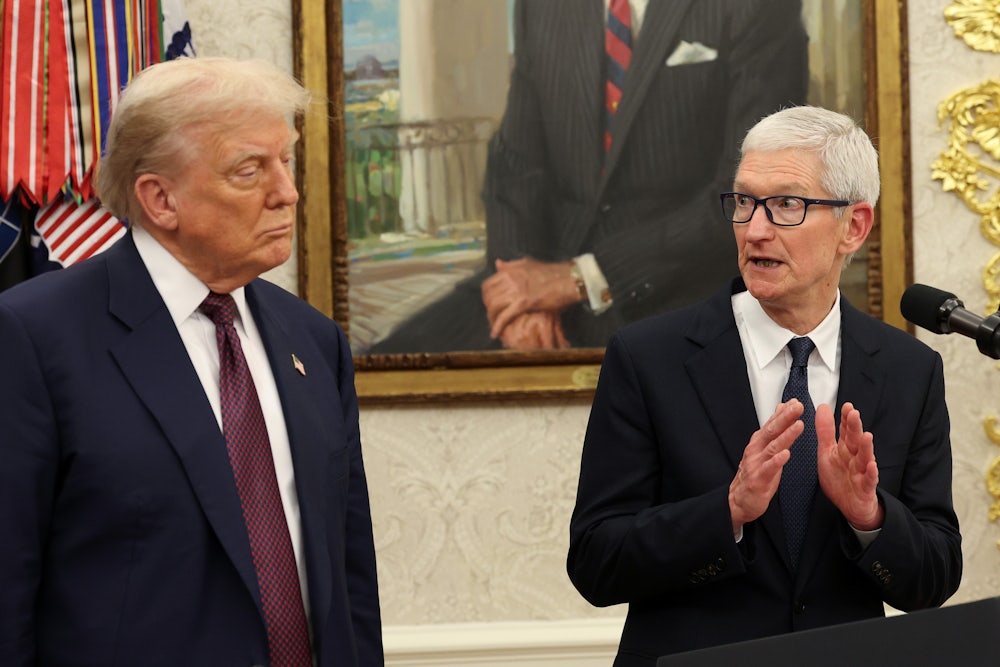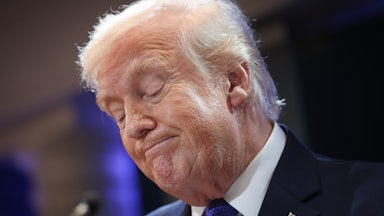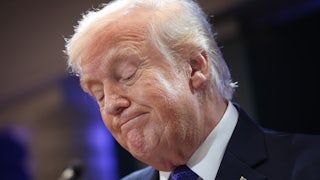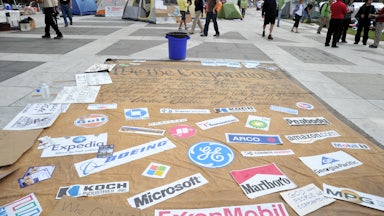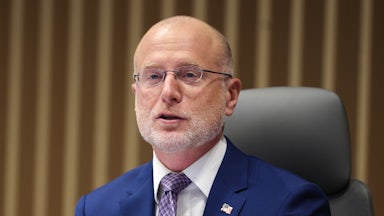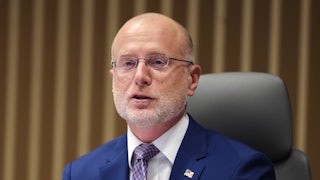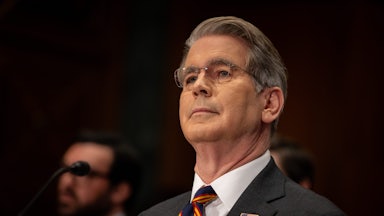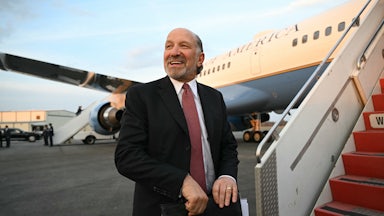An Axios report that the White House keeps scorecards measuring the loyalty of 553 corporations to President Donald Trump’s “big, beautiful” reconciliation bill demonstrates that the relationship between private wealth and this presidential administration isn’t as happy as you might think.
Yes, today’s federal government is more oligarchic than it’s been since 1929, chucking health care for the poor so it can cut taxes for the rich and rapidly dismantling regulatory agencies that were created to check corporate power. (See my June New Republic article “How the Billionaires Took Over.”) Lower taxes and deregulation are what oligarchs desire more than anything else, and the certainty Trump would deliver these was why people like Elon Musk, Timothy Mellon, and Miriam Adelson supported Trump in 2024. As I noted in that June essay, Kamala Harris outspent Trump overall, but seven out of the 10 top donors to either candidacy gave to Trump.
The price oligarchs must pay for all this, however, is not small. Trump’s pathological attachment to high tariffs, his never-ending threats to destabilize the Federal Reserve, and, increasingly, his demands that corporations bend the knee are all more than these plutocrats likely bargained for. And even as Trump dismantles regulatory agencies whose orderly operations are dictated by the 1946 Administrative Procedure Act, the president is introducing a new, much less accountable, much more chaotic regulatory regime dictated by his own whims. As the onetime Fortune editor Bill Saporito wrote last week in The New York Times: “In ripping up numerous business regulations, Trump seems intent on replacing them with himself.”
Goodbye, administrative state; hello, fascist corporatism. To quote Benito Mussolini: “Tutto nello Stato, niente al di fuori dello Stato, nulla contro lo Stato” (“Everything within the State, nothing outside the State, nothing against the State”). Or perhaps we should say: “Tutto nello Trump, nienta al di fuori della Trump, nulla contro lo Trump.” The shoe certainly fits; according to an April New Republic article by Alexander Stille, Trump’s pathological narcissism makes him a chip off Il Duce’s block.
In his Times piece, Saporito, following The Wall Street Journal’s Greg Ip, called the new Trump doctrine “state capitalism,” but that’s a euphemism that encourages false equivalence between what Trump is doing and President Joe Biden’s economic policies to promote chip manufacturing and clean energy. Love or hate the CHIPS and Science Act and the Inflation Reduction Act, these were achieved through constitutional means. Trump’s ideas very often aren’t.
In August, for instance, Trump allowed Nvidia to sell AI chips to China, a move he previously blocked on national security grounds, provided Nvidia turned over 15 percent of the resultant revenues to the U.S. Treasury. As with Trump’s tariffs, this was an exercise of power of the purse that the Constitution does not grant a president. Nor does the Constitution encourage a president to tell Goldman Sachs to fire its chief economist or Intel to fire its chief executive. In these instances, the companies ignored Trump’s advice, but such demands can be very disruptive.
I’m more favorably disposed to another example Saporito and Ip cite: Trump’s approving the merger of Nippon and U.S. Steel provided the U.S. government retain a “golden share” that allows it to veto certain future actions affecting workers. But I have no idea whether it would stand up to a court challenge, and language in the agreement that refers unnecessarily to Trump by name strikes me as unsettlingly authoritarian.
According to Axios’s Mike Allen, the loyalty scorecards rank a given business’s support as strong, moderate, or low based on whether and how it supported passage of the One Big Beautiful Bill Act through “social media posts, press releases, video testimonials, ads, [or] attendance at White House events.” The most obedient companies, according to a spreadsheet circulated in the West Wing, “include Uber, DoorDash, United, Delta, AT&T, Cisco, Airlines for America and the Steel Manufacturers Association.”
Allen did not list examples of companies that received low scores, but the disfavored probably include health care companies, which stand to lose money from the bill’s Medicaid cuts. The pharmaceutical industry is already taking it on the chin from the crackpot MAHA policies of Secretary of Health and Human Services Robert Kennedy Jr., and it can’t be happy that a forthcoming HHS health report will look at “overprescription trends” concerning mental health medications for children. Manufacturers of insecticides and ultraprocessed foods, on the other hand, must be doing something to please the Trump White House, because the HHS report will apparently take a dive on health risks posed by these industries.
Mussolini was initially praised by public figures as varied as George Bernard Shaw and Winston Churchill for reputedly making the trains run on time. But apparently he didn’t even accomplish that, and overall, fascist corporatism proved better at smashing unions in Italy, Germany, Spain, and Portugal than in creating wealth. If we consider Trump’s protection racket against universities a dry run for Trumpian fascist corporatism, the financial implications for the business world could be very dire. But if history is any guide, businesses don’t fight fascist corporatism; they just grope their way toward accommodating it. That’s certainly what we’re seeing thus far. Even when Trump bullies American oligarchs, they can’t see their way to judging him anything other than their guy.
